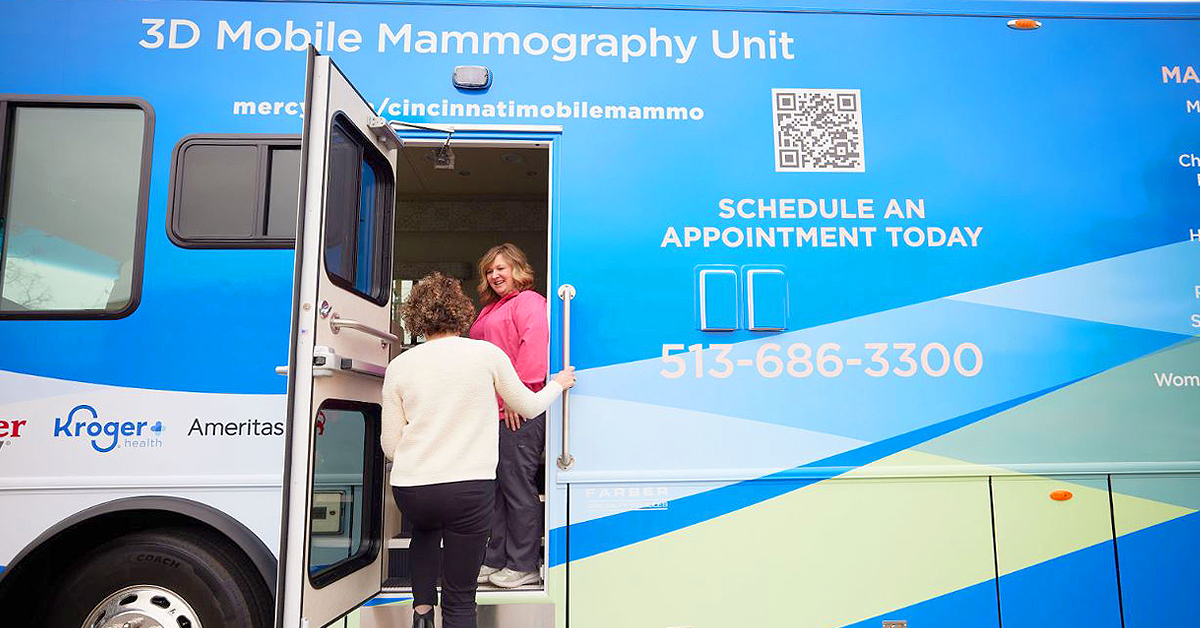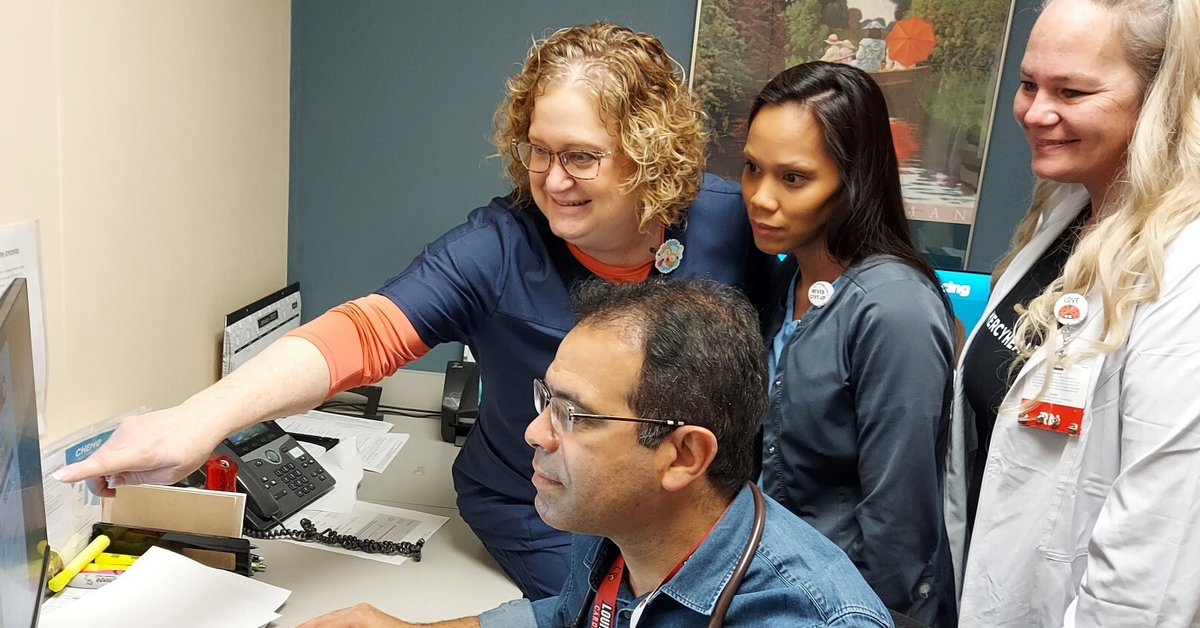When we partner to provide access to affordable housing and fresh food or take those extra few minutes to be present to a patient and family, we’re carrying forward the legacy of our foundresses, the Sisters of Mercy.
Sr. Cheryl Erb, a Sister of Mercy whose congregation members came to Cincinnati in 1858 and founded what became Mercy Health, shares that Women’s History Month is an opportunity to see the deep connections between the early sisters and our team members today.
The Sisters of Mercy’s savvy made them community leaders and sought-after clinicians in a time that was not the norm for women.
Sr. Erb explained the “revolutionary” nature of Catherine McAuley, the foundress of the Sisters of Mercy in Dublin, Ireland.
“When other religious orders were cloistered, she went out to where the poor were … she taught women who were homeless and poor skills so that they could get jobs … and she was very intentional about caring for the sisters so that tired from their day, they could be of service again the next,” Sr. Erb shares.
Herself part of Mercy Health, Sr. Erb is a member of Bon Secours Mercy Ministries and a former mission integration leader for the health system. As a mission leader during the toughest days of the COVID-19 pandemic, she saw the efforts the system undertook to help clinicians who were laboring to care for patients with a scarcity of protective gear through exhaustion and anxiety. Well-being and mental health programs, hotel assistance and more were provided. Sr. Erb also notes that there was an awareness by leaders, like that of Catherine McAuley back in the day, that there must be care for the caregivers.
Going where the people are
Sr. Erb said that the idea of “going to where the people are” crossed the Atlantic with the Sisters of Mercy, who came from Ireland to Cincinnati to help the city’s Irish immigrants at the Archbishop’s request.
In a letter to the sisters, Archbishop Purcell wrote: “The Sisters of Mercy shall never want their daily bread while I have a crust to share with them, and I may give the same assurance in the name of my successor. A city of 200,000 inhabitants, 50,000 of whom are Catholic, would not suffer the Sisters of Mercy to want food, raiment or protection. … ”
First aiding those plagued with cholera and then asking where the needs were and opening schools as well as hospitals – their first hospital opening in the 1890s on the first floor of an old mansion in Hamilton, Ohio – they went to the people.
Their mission continues today
The Sisters of Mercy’s mission outside of the walls of facilities – out where the people who are in need live – continues today as witnessed in our mobile health units as well as community health programs that unite our ministry with community partners to help our neighbors with needs such as affording their prescriptions and rent, accessing health education, safe neighborhoods, hosting health fairs and supporting community gardens, to name just a few.
“Our care includes human touch and compassionate presence – we will do everything we can to help make you well, and we’ll walk with you during the journey,” Sr. Erb says.
She adds that “health care is a science and an art.”
Sr. Erb feels that the sisters, and Catherine McAuley, were ahead of their time.
“Astute businesswomen and clinicians, but never failing to believe in human touch and presence,” she explains of the foundresses. “It makes me so proud to see that our team members have really internalized the charism of the Sisters of Mercy and that our leaders just get it. My dream as we go forward is to continue the sense of compassionate presence, that we continue to also care for our associates and clinicians as well as our patients. It gives me a great deal of joy and meaning and purpose to serve our ministry.”
Learn more about our history at Mercy Health as well as our Mission.
Also, read more stories celebrating our team members during Women’s History Month.






